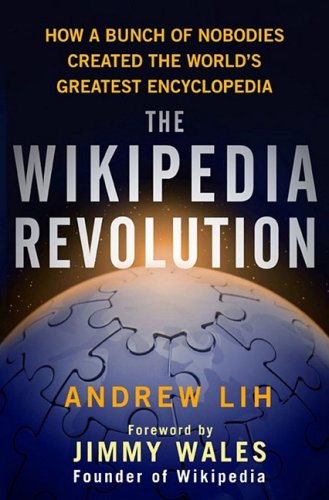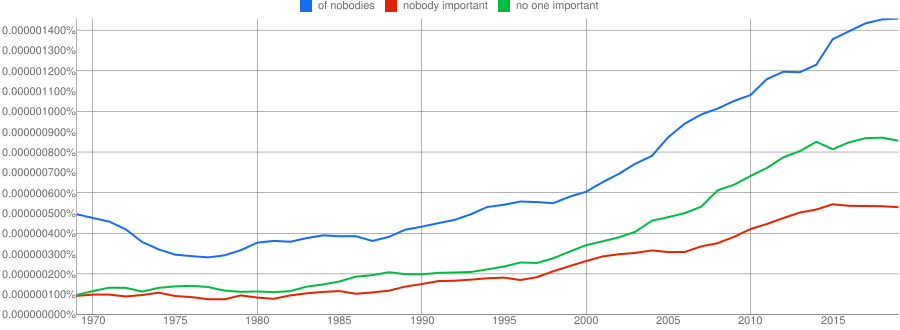A few days ago some stranger contacted me and I asked who he was. He replied and said:
Nobody important.
Now, it is clearly for a singular subject. One person can say that. But I am now wondering what is its plural form.
If my friends and I are asked a question concerning who we are, I would like to answer the same as above, i.e., "Nobody important" but now the subject is plural (we). How can I answer that?
In short, if someone asks my friends and me who we are, I would like to say "Nobody important" but that is for singular. What would be the plural?
- "We are no-ones important"?
- "We are nobodies important"?
In my research, I found three other sentences as well but they sound odd to me.
- We are not anyone important
- We are no one important
- None of us is anyone important.
Do they sound natural? If not, what would be an idiomatic expression for that?


